Whenever one thinks of a power system that is friendly and dependable, diesel-powered generators are often the first thought that comes to mind for many homeowners. Whether it’s preparing for the unexpected event of power outages or trying to keep the most basic equipment running on power in an emergency, or simply having a reliable standby power source, diesel generators stand out in terms of importance in any application. Most people face a dilemma when selecting a generator for their home due to various factors, including capacity, energy efficiency, and maintenance costs. This guide aims to help you ease your selection by providing detailed information on diesel generators, their advantages, and essential aspects to consider when making the right choice. After reading through this entire guide, you will be equipped with all the information you need to know about diesel generators in the home, including the reasons for having one, whether it is for emergency use or not.
Advantages of Diesel Generators
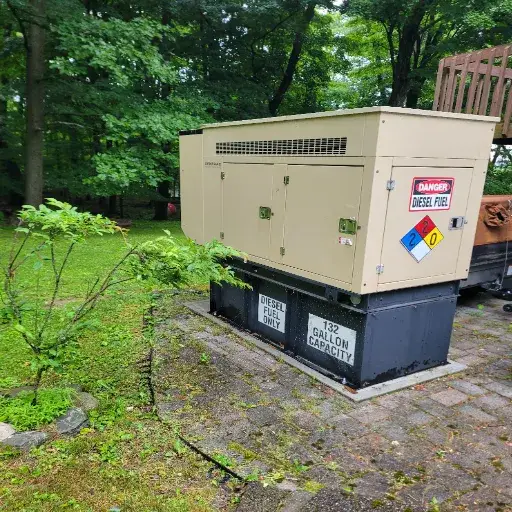
- ✓
Fuel Efficiency: Diesel generators are highly fuel-efficient, often consuming less fuel compared to other types of generators while providing the same level of power. - ✓
Durability and Longevity: These generators are renowned for their exceptional durability, requiring fewer replacements due to their robust construction and ability to withstand heavy use. - ✓
Cost-Effective Operation: While the initial purchase price may be higher, diesel fuel is generally more affordable in the long term, and the efficiency of these generators reduces overall operational costs. - ✓
Reliable Power Supply: Diesel generators provide consistent and stable power output, making them ideal for emergencies and extended use during power outages. - ✓
Low Maintenance Requirements: With more straightforward mechanics and fewer moving parts compared to other types of generators, diesel generators typically require less maintenance.
Comparison: Diesel vs. Gasoline Generators
Here’s a detailed comparison table of Diesel vs. Gasoline Generators based on the latest research:
| Parameter | Diesel Generators | Gasoline Generators |
|---|---|---|
| Fuel Efficiency | More fuel-efficient, longer runtime | Less efficient, higher fuel consumption |
| Durability | Longer lifespan, robust design | Shorter lifespan, less durable |
| Maintenance | Requires less maintenance, no spark plugs | More frequent maintenance is needed |
| Fuel Cost | Diesel is cheaper per gallon | Gasoline is more expensive |
| Power Output | Handles larger loads, reliable for extended use | Suitable for smaller loads |
| Safety | Lower risk of ignition | Higher flammability risk |
| Noise Levels | Quieter in modern models | Generally noisier |
| Portability | Heavy and less portable | Lightweight and portable |
| Environmental Impact | Higher emissions, less eco-friendly | Slightly cleaner but still polluting |
| Cold Weather Performance | May require glow plugs for cold starts | Harder to start in cold weather |
| Initial Cost | Higher upfront cost | Lower upfront cost |
| Repair Costs | Expensive parts, fewer repairs needed | Cheaper parts, more frequent repairs |
| Installation | More complex and costly | Easier and cheaper |
Ideal Use Cases for Diesel Generators in Homes
When considering the most efficient method of powering a home in a particular situation, it is not uncommon to consider diesel generators as a preferred option over others. Such generators can be handy for homes whose electricity supply is interrupted from time to time, and these interruptions can last for a considerable duration. Additionally, homes in areas with poor electricity coverage or remote locations would find such devices quite magical, as accessing diesel fuel in these settings is much easier than obtaining any other type of fuel. Furthermore, diesel generators at home can be suitable where there is high power consumption, for instance, with numerous appliances in the house, such as heating units, air conditioning units, pumps, and elevators. They are also very fuel-efficient, making them a good option for homeowners seeking a reliable and strong source of energy.
How to Choose the Right Size Generator
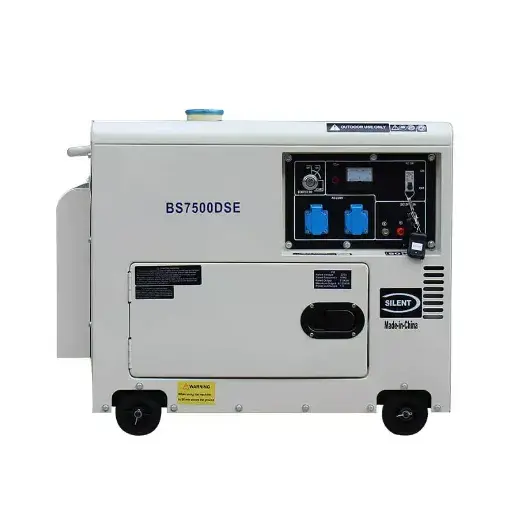
Before purchasing a generator, these steps should guide you in selecting the ideal size:
- Determine Your Power Needs: Create an inventory of all appliances and gadgets that must remain operational in the event of a power outage. Determine the power consumption of each appliance and device, and calculate the total running and starting power.
- Select a Generator Size: Match the ascertained wattage requirements with a suitable generator. For safety and performance purposes, the generator should be selected so that its power slightly exceeds the consumer’s power requirement.
- Consult a Professional: Are your calculations the sizes correct? It may also be advisable to consult an expert, such as an electrician or someone specializing in the distribution of diesel generators, particularly in the specific context one is in, and at home.
Understanding Your Power Needs
To ensure that you can use the devices that meet your off-grid needs, it is essential to have a power needs assessment conducted. You should understand what you need and why, starting with a list of everything necessary to you, along with the watts required to run each item. This is especially true for refrigerators, lights, air-conditioning/heating systems, and medical instruments, among others, which tend to consume more electricity than others and must therefore be accounted for. Furthermore, the motors used by devices often draw much more power at start-up than during operation, and so the starting and running wattage should be considered. Additionally, by knowing your power consumption, you can effectively choose a generator that can provide for both your maximum and average loads, which is the essence of backup power.
Sizing Guidelines for Home Generators
When considering power backup solutions for your home, it is essential to determine your power requirements. In the case of installations such as a diesel generator at home, this refers to forecasting every item that the household deems essential to sustain during blackouts. I am referring to appliances such as refrigerators, freezers, lights, HVAC systems, and communication apparatus, among others. Sum the wattage rating for running all these, and, most importantly, include the starting current ratings for appliances powered by motors, which sometimes increase their normal current by a few times.
A significant number of producers also offer web-based systems that provide generator size analysis and selection calculators. All you need to do for these tools is to enter the power requirement you have in mind, and they will perform the rest. In most cases, a reasonable generator size for basic diesel generators for a home will be around 5–7.5kW, and about 20 kW or more for all the appliances found in any given house, regardless of size. An allowance for the projected demand is mandatory due to such adverse conditions.
Installation Tips for Diesel Generators
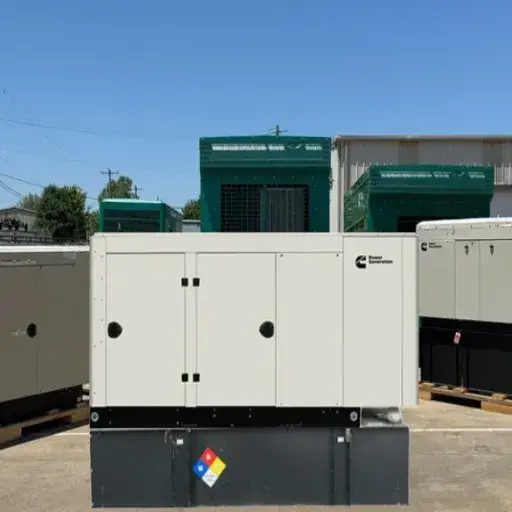
First, choose a location that’s safe, level, and open to proper ventilation to facilitate the operation of diesel generators without overheating or backflooding of fumes exhausting into the home itself. Noise and fume emissions are another advantage of this position as well. To improve weather conditions, consider creating a shed at this location, where the generator will be positioned. Use the associated closure device to isolate a generator from the house electric circuit correctly, as it does not backfeed. Lastly, install and use the generator properly in accordance with local rules and regulations concerning such activities, and where applicable, hire an electrician to perform the same task.
Pre-Installation Checklist for Diesel Generators
Before installing a diesel generator, it is essential to complete all necessary preparation steps to ensure the generator operates safely and efficiently. These are the most crucial items that require attention.
Select a Suitable Location
It is essential to select an area, preferably an open one, that is located away from flammable substances, water, and people’s homes, to minimize the risk of carbon monoxide inhalation and fire hazards.
Verify Power Requirements
Consult the power demand of the respective building and guess the dimensions and the capacity of the machine to be filled. Both indispensable and superfluous loads must be taken into account while making this estimation.
Ensure a Stable Foundation
The generator should be mounted on a concrete pad or any other solid, level surface that is non-flammable and can support its weight while minimizing vibrations.
Obtain Necessary Permits
Determination of any necessary permits associated with the installation of generators in the region should be made. This will help to control observance of zoning, noise, air quality, and maintenance.
Plan for Fuel Storage and Accessibility
Arrange diesel generators in a safe and compliant storage solution within the home, ensuring the generator is placed securely, and equip it with a long enough pipe for refueling.
Safety Considerations During Installation
While mechanical installations provide obvious benefits, it is essential to ensure the safety of personnel, the surrounding area, and the equipment, particularly when installing diesel power units. The following safety precautions are worth noting:
⚠️ Location and Ventilation
To prevent inhaling and/or exposing people in the workplace environment to exhaust fumes, such as carbon monoxide, the generator should be positioned in designated areas marked as open spaces. Appropriate ventilation also prevents personnel from being adversely exposed to toxic substances and encourages the smooth running of the generator.
🔥 Fire Prevention Measures
Avoid placing inflammable substances, such as gasoline, close to the generator, and equip the area with fire-fighting equipment. Diesel fuel is considered safer than gasoline due to its low volatility. Nevertheless, it can also catch fire under specific working conditions; therefore, it should be dealt with and stored appropriately.
⚡ Electrical Safety
Connections should only be carried out by trained personnel to minimize the risk of electrical hazards, such as electrocution, short circuits, or damage to the equipment. Inspect all connections in accordance with the prevailing electrical standards to ensure compliance.
🔧 Proper Grounding and Stability
Proper and accurate grounding of the generator helps to prevent electrical problems. Electrical faults and accidents can be further prevented by ensuring that the generator does not rest on areas that encourage vibration or tipping.
🦺 Use of Appropriate Personal Protective Equipment (PPE)
Workers carrying out installations should have PPE, which consists of gloves, safety glasses, helmets, and work shoes with steel toes, which should be worn during working hours by those workers. These risks include accidentally spilling the fuel, getting cut by a sharp object, or misusing a tool without wearing gloves, which carries a high risk of injury.
Maintenance and Safety Guidelines
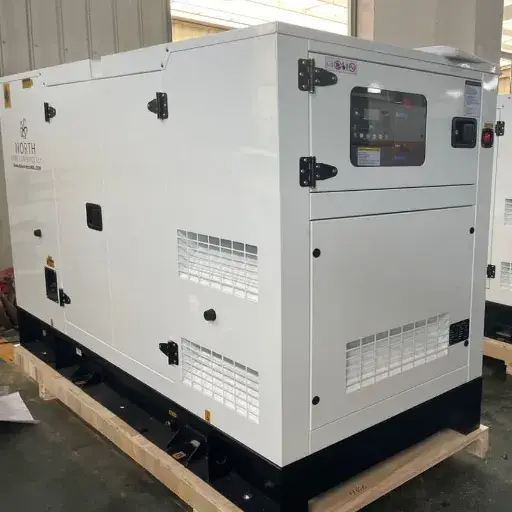
Diesel generators and home appliances are devices that convert mechanical energy into electrical energy through artificial means. These machines generally function the same way, regardless of their size or model. However, like other mechanical and electrical devices, diesel generators require a lack of foreign debris inside their components to perform efficiently. This is a significant factor in ensuring that these machines last and do not fail, even in the shortest time possible. It is essential to note that a clean, inoperable engine can still produce significant power.
Routine Maintenance for Diesel Generators
Routine maintenance for diesel generators should be performed in accordance with the manufacturer’s recommendations. It typically addresses several factors, including daily, weekly, monthly, and annual requirements. Simple daily monitoring tasks can be performed, such as checking fluid levels, identifying any leaks, and ensuring the generator is clean and free from obstructions. Weekly activities often include testing the battery, connections, and relays, as well as conducting generator load tests to ensure optimal performance. Similarly, monthly maintenance is typically relevant for oil and coolant levels operations, fuel improvements, or automatic transfer switches checks. Annually, as is the case, more maintenance is required, including the replacement of filters, an oil change, and a thorough inspection of the engine and electrical components. Following this schedule, in addition to scheduled professional surveillance, keeps your generator working steadily for a long time.
Safety Best Practices for Home Generators
Every time the generator is turned on in any residence, a significant concern is given to placing it outside in a way that avoids carbon monoxide poisoning. A generator should never be run at an overload, or contrary to the producer’s recommendations, for proper and safe usage. Keeping such equipment in good working condition means ensuring that timely checks and repairs will take place, thereby avoiding tragedies like crew fires and avoiding the risk of the house being compromised. Fuel is also stored in a location distant from the house to prevent potential fires.
Cost Considerations for Diesel Generators
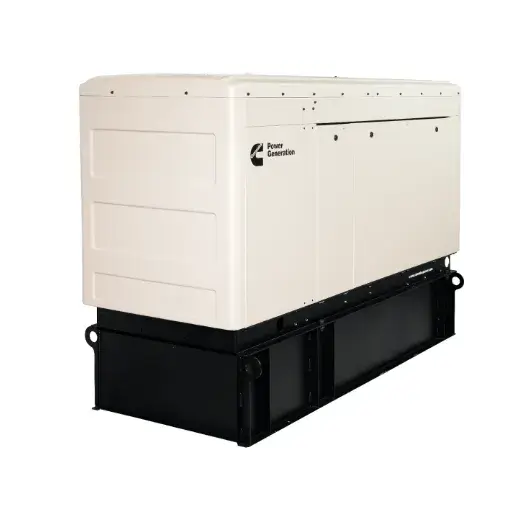
I’m glad you asked. There are several key considerations to consider when discussing the price of diesel generators, both in the short term and in the long run. The initial cost to acquire diesel generators will be relatively high compared to other species, but their operating costs will be lower due to their robust and long-lasting designs. In particular, diesel, which is the readily available fuel, is also preferred as it does not burn as quickly as “gaseous fuel”. Courtesy of this difference in calorific values, diesel uses far more or less fuel than the other fuels mentioned.” While such costs should be relatively stable, operating equipment entails some maintenance costs. Some fees may increase depending on the type of fuel being stored, as well as changes in legislation related to fuel storage and handling. Applying each of these components in moderation will go a long way in maximizing the returns on investment.
Initial Investment in Diesel Generators
Purchasing a diesel generator for home use requires a substantial investment, although the cost will vary depending on the capacity, brand reliability, and available features. However, small domestic diesel generators typically cost between $3,000 and $10,000 on average, while larger commercial and industrial ones can cost anywhere from $25,000 to $200,000. The major components of a generator’s cost include its power capacity, fuel efficiency, noise minimization features, and compliance with emission standards. Furthermore, there are also the costs of installing the generator (electrical connections, chargers, and infrastructures) to be factored into the costs. It is worth spending on good diesel generators because they offer durability; hence, upfront investments should be considered in conjunction with operational costs to enhance value.
Operational Costs: Fuel and Maintenance
The percentage of diesel that constitutes a portion of the operating cost of diesel generators at home is very high due to the cost of fuel. Fuel consumption varies depending on the generator’s capacity, the number of users connected to it, and the load the generator is powering. Typically, a diesel generator uses about 0.4–0.6 liters of fuel for every kilowatt-hour (kWh) of electric power generated. With advancements in technology, most of these generators have been designed to minimize fuel consumption. This is due to the generators’ efficiency. Overhaul, oil changes, filter changes, and inspection checks cover everything a routine maintenance care can do to keep the machine in good working order and prolong its life. All costs, including fuels and scheduled maintenance, should be included in the budget plan; otherwise, such deficiencies may contribute to a large number of failures and repair costs. Additionally, it is an economical way to run a system for an extended period without failures.
Reference Sources
There are five authoritative and professional reference materials you may use to ascertain the accuracy of your work on the home use of diesel generators. These materials are tertiary, providing in-depth and comprehensive knowledge about diesel genset technology and its applications.
An Alaska Case Study: Diesel Generator Technologies
Published by AIP (American Institute of Physics)
Techno-Economic Analysis of an Optimized Photovoltaic and Diesel Generator Hybrid Power System
Published by ScienceDirect
Friend or Foe? Diesel Generators and the Global Energy Transition
Published by ScienceDirect
Standalone Hybrid PV/Wind/Diesel-Electric Generator System for a COVID-19 Quarantine Center
Published by Wiley Online Library
Research into the Causes of Increased Vibration Levels on Diesel-Electric Generators
Published by Redalyc
Frequently Asked Questions (FAQs)
What is a standby generator, and how does it work?
A standby generator is an automatic backup power solution that activates when the utility power fails. These generators can power essential electrical loads in your home, ensuring a continuous electricity supply during outages. They are typically fueled by natural gas or propane and can be installed permanently with a tank and sound-insulated enclosures for noise reduction.
What are the benefits of home standby generators?
Home standby generators provide numerous advantages, including automatic power restoration, convenience, and enhanced safety. They can handle the electrical loads of an entire home, ensuring that essential appliances remain operational during a power outage. Additionally, many models, such as those from Generac or Cummins, offer best-in-class noise levels, typically 65 dB or lower, making them less disruptive.
How do I choose the right size for a whole-house generator?
Choosing the right size for a whole-house generator involves calculating your home’s electrical loads. You should consider the total wattage of the appliances and systems you want to power during an outage. For most homes, a generator between 20kw and 30kw is often sufficient. It’s crucial to consult with a professional to ensure your generator meets your specific power applications and needs.
What types of fuel are available for home standby generators?
Home standby generators typically operate on natural gas or propane. Each fuel type has its own advantages; natural gas is often more convenient and economical, while propane can provide a longer shelf life and higher energy content. It’s essential to select a generator that is compatible with your preferred fuel type to maximize efficiency and savings.
Are there noise considerations with standby generators?
Yes, noise is an important consideration when selecting a standby generator. Many modern models, including those equipped with QuietConnect technology, are designed to operate at low noise levels, typically around 65 dB or lower. Sound-insulated enclosures can also be added to reduce noise further, making them suitable for residential areas.
What maintenance is required for diesel generators at home?
Regular maintenance is essential for diesel generators to ensure reliability and longevity. This includes checking and changing the oil, inspecting fuel filters, and testing the battery. It’s also advisable to run the generator periodically to keep it in good working condition. Consulting the manufacturer’s guidelines, such as those from Cummins Onan or Generac, can provide specific maintenance schedules.
Can I use a mobile generator for home backup power?
While mobile generators can be used for home backup power, they may not provide the same level of convenience and reliability as a stationary standby generator. Mobile generators often require manual setup and connection to the home’s electrical system, unlike automatic standby generators that activate instantly during an outage. If you frequently need power during outages, investing in a home standby generator is usually the better choice.
What are the installation requirements for home standby generators?
Installing a home standby generator typically requires a concrete or gravel pad for placement, a connection to a fuel source, and an automatic transfer switch to manage power distribution. It’s essential to follow local codes and regulations; therefore, hiring a licensed electrician or contractor for the installation is recommended. This ensures safe and proper integration with your home’s electrical system.
